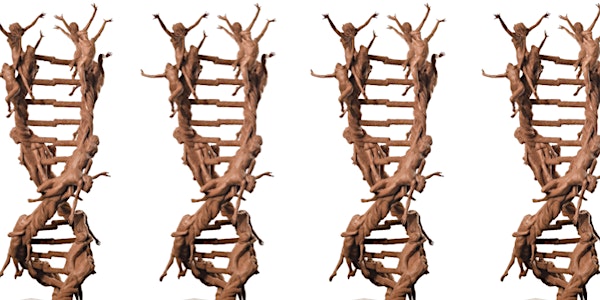
Science & Subjectivity in the 21st Century
Date and time
Location
John F. Kennedy School of Government
79 John F. Kennedy Street Cambridge, MA 02138Description
"The Molecularization of Identity: Science & Subjectivity in the 21st Century"
Recent advances in biological and computational technologies are changing the way we imagine race, gender, kinship, citizenship, and disease risk. Existing taxonomies may be displaced or reconfigured, impacting the ways in which people are governed, how lives are lived, how groups are known, and how power is exercised. Drawing upon the tools and expertise from multiple disciplines and geographical regions, and with specific attention to the material and lived dimensions of these developments, this symposium interrogates the complex ways in which the molecular realm is an emerging site for constituting human identities in the 21st century.
DAY ONE (Malkin Penthouse, 4th Floor, HKS Littauer Building)
Panel 1: Nation
Laura Foster (Indiana University), “The Postapartheid Genome: Genetic Ancestry Testing and the Fashioning of Biogenetic Belonging in South Africa”
Ian McGonigle (Israel Institute and Harvard University), “Biobanking in Qatar and Israel: Strong and Weak Co-Production of State and Science”
Vivette García Deister (Universidad Nacional Autónoma de México), “Genetic avatars of indigeneity and the Mexican nation”
Discussant: Jean Comaroff (Harvard University)
Panel 2: Values
Alessandro Blasimme (University of Zurich), “Digital health, big data and the dematerialization of the clinical self”
Ernesto Schwartz Marin (Durham University), “The net worth of Mexican “indigenous DNA”: genomics, (bio)economy and the sovereign making of ancestry
Catherine Bliss (UCSF), “The Molecularization of Identity Politics: Race and Market Logics”
Discussant: Snait Gissis (Tel Aviv University)
Panel 3: Humanity
Ruha Benjamin (Princeton University), "Gene-Editing or Shredding? A Disability Justice Approach to Imagining and Engineering Humanity"
Amy Hinterberger (University of Warwick), “Heredity Decentered: Constituting the Human across Molecular Scales”
Mirko Garasic (Tel Aviv University), “The Use of Performance Enhancing Drugs in the Middle East Armies: What Is Being Enhanced?”
Discussant: Evelynn Hammonds (Harvard University)
Panel 4: Nature
Deboleena Roy (Emory University), “Germline Ruptures: Methyl Isocyanate Gas and the Transpositions of Life, Death, and Matter in Bhopal”
Daphna Birenbaum-Carmeli (University of Haifa), “Nation and Family: Reproductive Technologies and the Shaping of Jewish Identities in Israel”
Sophia Roosth (Harvard University), “The Synthetic Kingdom: Transgenic Kinship in the Post-Genomic Era”
Discussant: Karen-Sue Taussig (University of Minnesota)
Panel 5: Genealogy
Elise Burton (Harvard University), “Human Genome Projects in the Middle East: Negotiating National, Professional, and Molecular Identities”
Jessica Kolopenuk (University of Victoria; Lekwungen and WSANEC Territory), “Becoming Native American: The Hyper-Racialization of Indigeneity (in Canada) through Genetic Facialization.”
David Gurwitz (Tel Aviv University), “Do I have Jewish genes? Personal genomes and Jewish identity”
Discussant: Maya Jasanoff (Harvard University)
__________________________________
DAY TWO (Bell Hall, 5th floor, HKS Belfer Building)
Panel 6: Risk
Anna Jabloner (Stanford Center for Biomedical Ethics), “Identity or Identification? Racialized Forensics and California’s Genetic Database”
Yulia Egorova (Durham University), “GM Food and Genomic Sovereignty: an ethnography of Indian life sciences.”
Christina Agapakis (Creative Director at Ginkgo Bioworks), “Risk and Synthetic Biology” (to be confirmed)
Discussant: Stephen Hilgartner (Cornell University)
Panel 7: Kinship
Lidia Averbukh (German Institute for International and Security Affairs), “The Construction of Ethnic Belonging in the Context of German and Israeli laws of Return”
Dani Kranz (German Institute for International and Security Affairs), “Blood used to be a special juice, now DNA is the name of the game: Notes on the blurry boundary of Jewishness and its ramification into Israeli – Jewish – citizenship”
Ari Ofengenden (Brandeis University), "Globalization of Surrogacy and the Production of Israeliness"
Discussant: Daphna Birenbaum-Carmeli (University of Haifa)
Panel 8: Privacy
Noam Shomron (Tel Aviv University), “The Dynamic Landscape of Genomic Privacy”
Michelle Spektor (MIT), “From Paper Identities to Body Data: Negotiating biometric identification in Israel”
Oliver Rollins (University of Pennsylvania) and Torsten Heinemann (Universität Hamburg & UC Berkeley), “Imaging Difference: The Neuroscience of Race”
Discussant: Sheila Jasanoff (Harvard University)
Closing Roundtable:
Chair: Sheila Jasanoff
with Snait Gissis, Joan Fujimura, and Ruha Benjamin